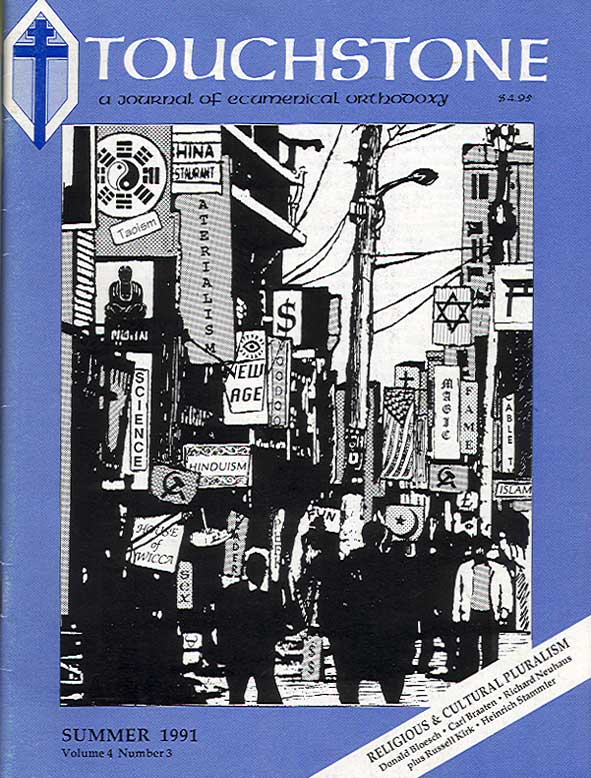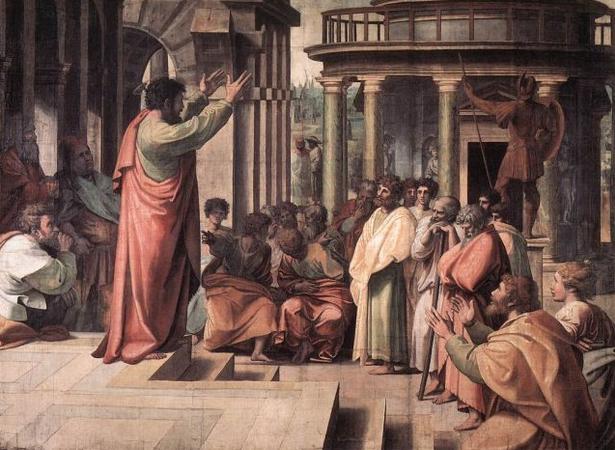The Finality of Christ & Religious Pluralism
by Donald G. Bloesch
With the rise of neo-Protestant theology in the eighteenth and nineteenth centuries and neo-Catholic theology in the twentieth century, a new theological model has emerged into prominence that seriously calls into question the exclusivistic claims of traditional Christian faith. The new paradigm has been facilitated by the Church’s encounter in the early nineteenth century with Romanticism with its emphasis on individuality, pluralism, and relativism. It was Schleiermacher (d. 1834) who exulted in the plurality of the modern world: “Let none offer the seekers a system making exclusive claim to truth, but let each man offer his characteristic, individual presentation.”1
The History of Religions school associated with such names as Ernst Troeltsch (d. 1923) and Johannes Weiss (d. 1914) also paved the way for modern relativism and pluralism. For Troeltsch there is no final revelation: the Divine Life within history always manifests itself in new and peculiar individualizations. Truth has many forms; ultimate reality is necessarily apprehended in a variety of ways, all of which have some claim to validity.
The emerging philosophy of pragmatism from the later nineteenth century on gave additional impetus to the slide toward relativism and pluralism. William James (d. 1910), who has had a unmistakable influence on both process theology and New Age theology, advanced the notion of a pluralistic universe, which allows for the coexistence of conflicting religious claims.
More recently, with the rise of the “theology of religions,” the uniqueness of Christian revelation has been further called into question. Paul Knitter of Xavier University in Cincinnati says that we need to “recognize the possibility that other ‘saviours’ have carried out . . . for other people” the redemptive work which as Christians we know in Jesus Christ.2 For Knitter the common ground of religion exists in the struggle to liberate the oppressed peoples of the world. Eugene C. Bianchi upholds a “Christian polytheism,” which allows for other savior figures besides Christ. Hans Küng contends that a person “is to be saved within the religion that is made available to him in his historical situation. Hence it is right and his duty to seek God within that religion in which the hidden God has already found him.”3 Calling for a “global religious vision” John Hick avers that it is no longer necessary “to insist . . . upon the uniqueness and superiority of Christianity; and it may be possible to recognize the separate validity of the other great world religions. . . .”4
The ascendancy of the new theological orientation can be described in various ways. Samuel Moffett, veteran Presbyterian missionary to Korea, views the nineteenth century as the age of missions, the early and middle part of the twentieth century as the age of ecumenism, and the present period as the age of religious pluralism. New Agers describe this last stage as the “Age of Aquarius,” marked by the celebration of the intuitive over the cerebral. Whatever images are used, it cannot be doubted that an exclusive monotheism is being challenged and in many cases supplanted by a religious pluralism that borders on syncretism.
Traditionally for Christians the soundness of any particular theological position was finally measured by how it stood on Jesus Christ. But now we have entered a period when our religious unity is to be found simply in the experience of a divine presence that takes multitudinous forms. This presence is variously called the Higher Self, the World Spirit, the Life Force, and the Creative Surge. A holistic vision has taken the place of the dualism of Descartes’ era; humanity and nature are now treated as dimensions of a single cosmic unity. Thus the utter transcendence of God is either seriously compromised or flatly repudiated.
Despite traditional voices within the Christian community, it cannot be denied that a new cultural paradigm, which is antagonistic toward any claim to exclusive truth, now holds sway over most of the nations of the Western world. This is also true for the nations of Eastern Europe, including the Soviet Union, which are resolutely abandoning the inflexible dogmatism of Marxist socialism for freedom, autonomy, and individuality. If one considers the reigning mentality in academic religious circles today, one must conclude that there has been a paradigmatic shift of immense proportions from a theology of transcendence to a theology of radical immanence in which God, present in all creation, is indistinguishable from creation. Predictably, traditional dogma has been eroded in favor of relativism and mysticism. Heresy as a valid theological concern is now out of fashion, although heresy in fact is stronger than ever. The Christ of Chalcedonian orthodoxy is in palpable eclipse in most circles, except those of traditional Roman Catholicism, confessional Evangelicalism, and Eastern Orthodoxy. And orthodoxy is no longer even considered a worthy theological goal.
The new trends in biblical criticism further foster this relativistic mentality. Structuralism finds the meaning of the text in the literary form which the text embodies; questions of historical reliability and ontological truth are conveniently left to the historians and philosophers respectively. Reader-responsive criticism (McKnight) now finds the meaning of the text in the subjective response of the reader. For the deconstructionist, the literary structures are changing because language is fluid; there is consequently no solid text the interpreter can work with. The notion that the Bible gives infallible information concerning the will and purpose of God is regarded by most of the new biblical critics as a relic of an outmoded dogmatism.
The common thread in most of the new theologies is denial of Jesus Christ as the very God himself, as a divine person in two natures. Instead we are directed to a Christ who is the decisive realization of human possibilities or the embodiment of some eternal value or ideal. The new heresies verge toward either an ebionitic interpretation (beginning with his humanity) or a docetic interpretation (beginning with some abstract idea of Christ).
A Reaffirmation of Biblical Christianity
Donald G. Bloesch is Professor of Theology Emeritus at Dubuque Theological Seminary. He has written numerous books, including The Future of Evangelical Christianity, The Struggle for Prayer, Freedom for Obedience, and is currently working on a seven-volume systematic theology, Christian Foundations. He lives in Dubuque, Iowa, with his wife, Brenda.
subscription options
Order
Print/Online Subscription

Get six issues (one year) of Touchstone PLUS full online access including pdf downloads for only $39.95. That's only $3.34 per month!
Order
Online Only
Subscription

Get a one-year full-access subscription to the Touchstone online archives for only $19.95. That's only $1.66 per month!
bulk subscriptions
Order Touchstone subscriptions in bulk and save $10 per sub! Each subscription includes 6 issues of Touchstone plus full online access to touchstonemag.com—including archives, videos, and pdf downloads of recent issues for only $29.95 each! Great for churches or study groups.
Transactions will be processed on a secure server.
more from the online archives
calling all readers
Please Donate
"There are magazines worth reading but few worth saving . . . Touchstone is just such a magazine."
—Alice von Hildebrand
"Here we do not concede one square millimeter of territory to falsehood, folly, contemporary sentimentality, or fashion. We speak the truth, and let God be our judge. . . . Touchstone is the one committedly Christian conservative journal."
—Anthony Esolen, Touchstone senior editor










